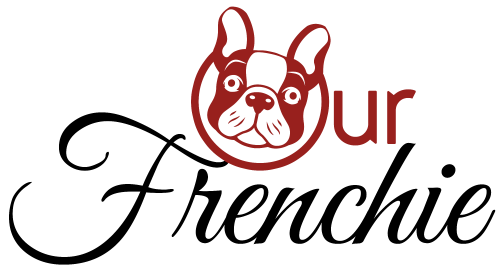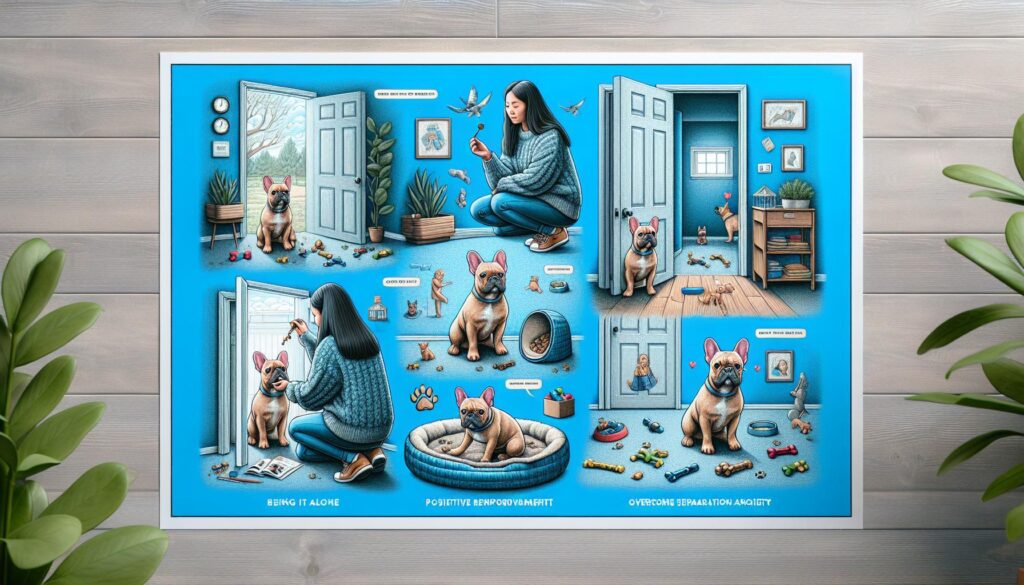About
Solving Separation Anxiety in French Bulldogs
Page Contents
Separation anxiety is a common challenge faced by many French Bulldog owners, causing distress for both pets and their human companions. Known for their affectionate and sociable nature, French Bulldogs often form strong bonds with their families, making time apart particularly challenging.In this article, we explore effective strategies and techniques to alleviate separation anxiety in French Bulldogs, ensuring a happier, healthier life for your beloved pet. From understanding teh root causes to implementing gradual desensitization and creating a comforting environment, discover how to ease your Frenchie’s anxiety and foster a sense of security even when you’re not at home.
Understanding French Bulldog Anxiety Triggers
French Bulldogs,with their charming personalities and affectionate nature,can be particularly prone to anxiety,especially when separated from their beloved humans. Understanding the root causes of their anxiety is crucial in addressing and mitigating the issue effectively. One of the primary triggers is **lack of socialization**.French Bulldogs that haven’t been exposed to various environments, people, and other animals from a young age may develop fear and anxiety when faced with new situations or when left alone.
Another significant trigger is **changes in routine**. Thes dogs thrive on consistency and can become anxious if ther are sudden changes in their daily schedule,such as altered feeding times,new family members,or even a change in their owner’s work schedule. Additionally, **past trauma or negative experiences** can contribute to anxiety. A French bulldog that has been rehomed multiple times or has experienced neglect may have heightened separation anxiety due to fear of abandonment.
- Genetic predisposition: some French Bulldogs may be naturally more anxious due to their genetic makeup.
- Overattachment: dogs that are overly attached to their owners can struggle with separation, leading to anxiety.
- Environmental factors: Loud noises, unfamiliar settings, or even an uncomfortable living environment can trigger anxiety.
Identifying these triggers is the first step in helping your French Bulldog feel more secure and comfortable when alone. By addressing these factors, you can create a more stable and reassuring environment for your furry friend.
Recognizing Symptoms of separation Anxiety
Understanding the emotional state of your French Bulldog when you’re not around is crucial in addressing separation anxiety. These affectionate companions often exhibit specific behaviors when they feel stressed by your absence.**excessive barking or whining** is one of the most common signs. If your neighbors frequently report hearing your dog vocalize when you’re away, it may be a red flag. Similarly, **destructive behaviors** such as chewing furniture, scratching doors, or tearing up household items can indicate that your Frenchie is struggling to cope with being alone.
another symptom to watch for is **house soiling**,even if your dog is or else well-trained. Accidents in the house can be a direct result of anxiety rather than a lapse in training.Additionally, french Bulldogs may exhibit **pacing or restlessness**, often following a repetitive path around the house. In certain specific cases, they might even show signs of **depression**, such as a lack of interest in their favorite toys or a decrease in appetite.
- Excessive barking or whining
- Destructive behaviors
- House soiling
- Pacing or restlessness
- Signs of depression
Recognizing these symptoms early allows you to take proactive steps in easing your French Bulldog’s anxiety, ensuring a happier and healthier life for your furry friend.
Creating a Safe and Comforting Environment
French Bulldogs are known for their affectionate nature, making them particularly susceptible to separation anxiety when left alone. To mitigate this, it’s essential to establish an environment where they feel secure and at ease. Begin by designating a specific area in your home as their safe haven. This can be a cozy corner equipped with their favorite blankets and toys. Ensure that this space is away from loud noises and has a calming ambiance, perhaps with soft lighting or a white noise machine to mimic companionship sounds.
Consider incorporating **comfort items** that can provide a sense of security.This might include:
- A piece of clothing with your scent to reassure them of your presence.
- interactive toys or puzzles to keep their minds engaged.
- A comfortable bed or cushion that supports their joints and provides warmth.
Another crucial aspect is maintaining a consistent routine. Dogs thrive on predictability, so establish regular feeding, walking, and playtimes. This consistency helps them understand that even though you may leave, you will always return. Additionally, practice short departures to gradually increase their tolerance, rewarding them with treats or praise upon your return. By creating a nurturing and predictable environment, you can significantly alleviate the anxiety your French Bulldog experiences when alone.
effective Training Techniques for Calmness
When addressing separation anxiety in French Bulldogs,implementing effective training techniques is crucial for fostering calmness. Begin by establishing a consistent routine that helps your Frenchie anticipate daily activities. **Predictability** can significantly reduce anxiety levels, as it provides a sense of security.Ensure that feeding, playtime, and walks occur at the same time each day, reinforcing their understanding of what to expect.
Incorporate **positive reinforcement** to encourage calm behavior. Reward your French Bulldog with treats or affection when they remain relaxed in situations that previously triggered anxiety. This could include calmly sitting when you prepare to leave or resting quietly in their designated space. Training sessions should be short but frequent, ensuring they don’t become overwhelming or stressful for your pet.
- Practice **gradual desensitization** by leaving your Frenchie alone for short periods initially, gradually increasing the duration as they become more comfortable.
- Introduce **interactive toys** or puzzles that engage their minds and keep them occupied when alone, diverting their attention from your absence.
- Use **calming signals**, such as soft music or a piece of your clothing with your scent, to provide reassurance during your absence.
Consistency and patience are key. Over time, these techniques can help your French Bulldog develop a greater sense of calmness and independence, reducing the impact of separation anxiety on their well-being.
Incorporating Toys and Puzzles for Distraction
Introducing toys and puzzles into your French Bulldog’s routine can be a game-changer in managing separation anxiety. These interactive tools not only provide mental stimulation but also serve as a distraction from the stress of being alone. **Interactive toys** such as treat-dispensing balls or puzzle feeders can keep your furry friend engaged for extended periods.By challenging their problem-solving skills, these toys help redirect their focus from your absence to the task at hand.
Consider rotating a variety of toys to maintain your dog’s interest. **Chew toys** made of durable materials can also be beneficial, as they satisfy your dog’s natural urge to chew while promoting dental health.Look for toys that make noise or have different textures to add an extra layer of intrigue.
Incorporate these activities into a consistent routine to help your French Bulldog associate your departure with positive experiences. You may also want to introduce **snuffle mats** or **hide-and-seek games** with treats, which encourage natural foraging behaviors and keep their minds occupied. By integrating these playful distractions into their daily life, you can help alleviate the symptoms of separation anxiety and create a more peaceful environment for your beloved pet.
Establishing a Consistent routine for Security
Creating a stable and predictable daily routine can greatly help alleviate separation anxiety in French Bulldogs. These sensitive dogs thrive on consistency, which provides them with a sense of security and helps mitigate stress when left alone. Start by establishing regular times for feeding, walks, play, and rest. This not only sets expectations but also helps your Frenchie understand that you will always return for these crucial activities.
Incorporate the following elements into your routine to enhance stability and comfort:
- feeding Schedule: Serve meals at the same times each day. this regularity helps your dog anticipate when you will be home and provides a comforting ritual.
- Exercise and Play: Engage in interactive play sessions and walks at consistent times. Physical activity helps expend energy and reduce anxiety.
- Rest Periods: Ensure your French Bulldog has a quiet place to rest during the day. A designated nap time can help them feel calm and secure.
While consistency is key, it’s also important to gradually introduce small changes to the routine to build adaptability. This can help your Frenchie adapt more easily to unexpected events. By maintaining a balanced routine, you provide a foundation of trust and security that can significantly ease separation anxiety.
Using Positive Reinforcement to Ease Anxiety
Positive reinforcement is a powerful tool for addressing separation anxiety in French Bulldogs. By rewarding calm behavior and gradually building their confidence, you can help your furry friend feel more secure when left alone. Begin by identifying what motivates your French Bulldog—whether it’s treats, toys, or affection—and use these rewards to encourage desired behaviors.
Start with short departures, even just stepping out of the room for a few seconds, and gradually increase the duration. Each time, reward your French Bulldog with a treat or praise when they remain calm.This process helps them associate your absence with positive outcomes. Consistency is key, so make sure every family member follows the same routine and reward system.
- **Reward Calmness**: Give treats or affection when your dog is relaxed.
- **Gradual Departures**: Slowly increase the time you spend away.
- **Routine and Consistency**: Maintain a consistent schedule and reward system.
- **Engaging Toys**: Provide puzzle toys or chew items to keep them occupied.
Also, consider incorporating training commands such as “stay” or ”wait” to reinforce patience and calmness. Over time, your French Bulldog will learn to associate your departures with positive experiences, reducing their anxiety and helping them become more independent.
Seeking Professional Help for Severe Cases
In instances where your French Bulldog’s separation anxiety is severe and unmanageable through basic training techniques, it might be time to seek professional assistance. A certified animal behaviorist or a professional dog trainer with experience in anxiety disorders can offer valuable insights and tailored strategies. These experts can help identify specific triggers and develop a thorough behavior modification plan.Often, they will conduct a thorough assessment of your dog’s behavior and environment to craft an effective intervention strategy.
Additionally, consulting a veterinarian is crucial as they can rule out any underlying medical conditions that might be exacerbating your dog’s anxiety.in some cases, medication may be prescribed to help manage symptoms, making it easier for your dog to cope with being alone. **Medications** are typically used in conjunction with behavior modification plans and should always be administered under the supervision of a veterinarian.
- **Behavioral Therapy**: Customized sessions with a professional to address anxiety triggers.
- **medication**: Prescribed by a vet to help alleviate severe anxiety symptoms.
- **Veterinary Consultation**: Essential for ruling out medical issues and discussing treatment options.
remember, every French Bulldog is unique, and what works for one might not work for another. A professional can help you navigate these complexities and provide the support needed to improve your dog’s quality of life.
Final thoughts
addressing separation anxiety in French Bulldogs requires patience, understanding, and consistent effort. By implementing strategies such as gradual desensitization, providing mental stimulation, and creating a comforting environment, you can help your furry friend feel more secure and independent. Remember, each dog is unique, so it may take time to find the right approach.By nurturing trust and confidence,you not only alleviate anxiety but also strengthen the bond with your beloved pet. With dedication and love, your French Bulldog can thrive, even when you’re apart.

